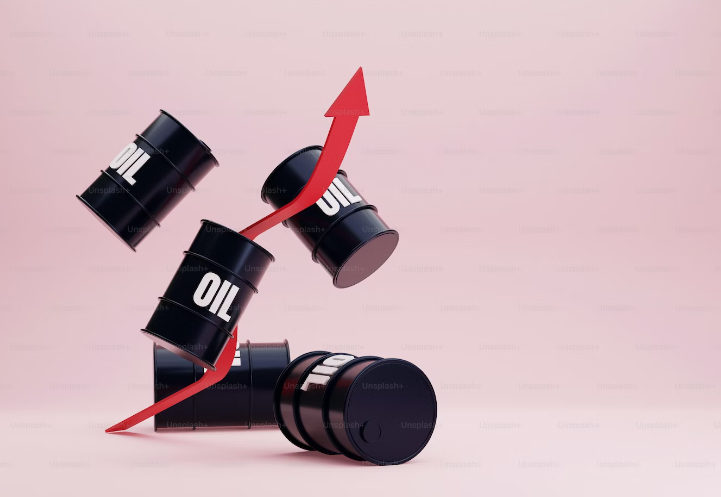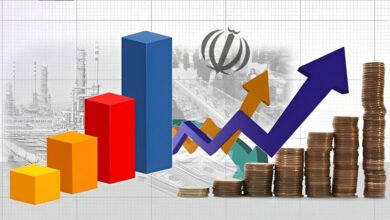Investing in Black Gold: A Beginner’s Guide to Trading Oil Markets

Oil trading, driven by its importance as a vital energy source and the potential for substantial financial gains, has become an attractive venture for black gold investment and traders alike. However, entering the world of oil trading can be overwhelming for beginners.
Whether you aspire to become a professional oil trader or simply want to gain a better understanding of the industry, this guide will provide valuable insights to help you start your oil trading journey.
What is oil trading?
Oil trading refers to the buying and selling of oil as a commodity in financial markets. It involves the speculation and trading of various types of oil, including crude oil and refined petroleum products. Oil trading can take place through different financial instruments such as futures contracts, options, exchange-traded funds (ETFs), and over-the-counter (OTC) contracts.
The primary purpose of oil trading is to profit from fluctuations in oil prices. Traders and black gold investment engage in oil trading with the expectation of buying oil at a lower price and selling it at a higher price, or vice versa, to generate financial gains. They capitalize on price movements driven by factors such as supply and demand dynamics, geopolitical events, economic indicators, and market sentiment.
Oil trading is conducted on various exchanges worldwide, where buyers and sellers come together to trade oil contracts. These exchanges provide a platform for transparent price discovery and facilitate the efficient trading of oil. Notable oil trading exchanges include the New York Mercantile Exchange (NYMEX), Intercontinental Exchange (ICE), and the Dubai Mercantile Exchange (DME).
Traders in the oil market employ various trading strategies, including technical analysis, fundamental analysis, and algorithmic trading, to identify trends, patterns, and opportunities for profit. They closely monitor market news, geopolitical developments, production levels, inventories, and other factors that can impact oil prices to make informed trading decisions.
Where Can I Trade Oil?
Oil can be traded in several different markets and platforms. Here are some common avenues for trading oil:
- Commodity Exchanges: The most popular exchanges for trading oil are the New York Mercantile Exchange (NYMEX) and the Intercontinental Exchange (ICE). These exchanges offer futures contracts and options on various crude oil grades, such as West Texas Intermediate (WTI) and Brent crude.
- Online Brokers: Many online brokerage firms provide access to oil trading through their platforms. These brokers typically offer contracts for difference (CFDs) or other derivative products based on oil prices. Examples of popular online brokers include eToro, Plus500, and IG.
- Exchange-Traded Funds (ETFs): Oil ETFs allow black gold investment to gain exposure to oil prices without directly trading futures contracts. These funds typically track the price of oil or oil-related indexes and can be traded on stock exchanges. Examples include the United States Oil Fund (USO) and the Energy Select Sector SPDR Fund (XLE).
- Oil Company Stocks: black gold investment company stocks is another way to gain exposure to the oil industry. By buying shares of oil and gas companies, you can potentially benefit from changes in oil prices and the performance of the companies themselves. These stocks are typically traded on stock exchanges.
- Over-the-Counter (OTC) Markets: Some oil trading occurs in the OTC market, where participants can negotiate and trade oil contracts directly with each other. This market is less regulated and less transparent than exchanges but offers flexibility in contract terms and customization.
Steps to buy and sell crude oil
Buying and selling crude oil involves navigating various avenues, each with its own complexities. Here’s a breakdown of the steps you need to consider depending on your approach:
Trading Crude Oil Derivatives:
- Choose your instrument:
- Futures contracts: Represent physical oil delivery at a future date on major exchanges like NYMEX or ICE. High capital needs and significant risk.
- Options contracts: Provide the right, but not obligation, to buy or sell oil at a future date and price. Offer flexibility but require understanding of option strategies and margin.
- CFDs: Leveraged contracts tracking oil prices without physical delivery. Lower entry barrier but with high risk due to potential losses exceeding your initial deposit.
- Oil ETFs and Funds: Track the performance of oil-related companies or oil contracts, offering broader exposure with lower initial black gold investment . Not directly exposed to oil price movements.
- Spot Trading: Oil spot prices show how much it would cost to buy or sell oil right now, rather than at some future date.
- Open a brokerage account:
Choose a reputable broker licensed for trading your chosen instruments. Compare fees, minimum deposits, and platform features.
- Fund your account:
Deposit sufficient funds to cover the initial margin or contract purchase price and potential account fees.
- Analyze market conditions:
Research factors impacting oil prices, including global events, supply and demand dynamics, and technical indicators. Develop a trading strategy based on your analysis and risk tolerance.
- Execute your trade:
Place your buy or sell order through your broker’s platform, specifying the instrument, contract quantity, and desired price (for limit orders).
- Monitor and manage your position:
Track market movements and adjust your position as needed based on your strategy and risk management plan. Consider stop-loss orders to limit potential losses.
- Close your position:
Sell your futures contract, exercise your option, or exit your CFD or ETF position to realize profit or minimize losses.
Read About: What is Bitcoin
What is oil spot trading?
Oil spot trading refers to the practice of purchasing and selling underlying oil assets at the spot price, which is the current level of the market. Because it often has smaller spreads and no set expiration dates, spot trading is favored by day traders.
black gold investment: How to trade spot oil
To trade spot oil, you can follow these general steps:
- Ensure Spot Trading is Suitable: Assess whether spot trading aligns with your trading objectives and strategy. Consider factors such as your risk tolerance, desired time horizon, and available capital.
- Understand Oil Spot Trading: Gain a solid understanding of how spot trading in the oil market works. Learn about spot prices, market dynamics, supply and demand factors, and the impact of geopolitical events on oil prices.
- Create an Account and Log In: Choose a reputable broker or trading platform that offers spot oil trading. Complete the registration process, provide the necessary information, and log in to your trading account.
- Select Your Spot Oil Market: Determine which spot oil market you want to trade. Common benchmarks include Brent crude oil and West Texas Intermediate (WTI). Consider factors such as liquidity, trading hours, and contract specifications when making your choice.
- Set Position Size and Manage Risk: Determine the size of your position based on your risk management strategy and the amount of capital you are willing to allocate. Set stop-loss orders to limit potential losses and consider using risk management tools like trailing stops or take-profit orders.
- Place Your Spot Oil Trade: Use the trading platform’s interface to enter the details of your trade. Specify whether you want to buy or sell, the quantity of oil you wish to trade, and any other necessary parameters. Review the trade details and confirm the order.
- Monitor Your Trade and Manage Positions: Keep a close eye on your spot oil trade once it is executed. Monitor price movements, market conditions, and any relevant news or events that may impact oil prices. Adjust your positions if needed, and consider implementing risk management techniques to protect your capital.
Advantages of black gold investment
- Profit potential: Oil trading presents significant profit potential due to the high volatility of oil prices. Traders can take advantage of price fluctuations to buy low and sell high, generating substantial returns on their investments.
- Liquidity: The oil market is one of the most liquid markets in the world, meaning that there is a high volume of trading activity and ample opportunities to buy and sell oil contracts.
- Diversification: Oil trading allows investors to diversify their portfolios. Since oil prices are influenced by various factors such as geopolitical events, economic indicators, and supply and demand dynamics, trading oil can provide a hedge against risks associated with other asset classes.
- Global demand: Oil is a vital energy source for various industries and countries worldwide. As a result, there is a constant and significant demand for oil, which provides trading opportunities for those willing to speculate on price movements.
- Hedging capabilities: Oil trading allows producers and consumers of oil to hedge against price fluctuations.
Read About: invest in cryptocurrency
Disadvantages of black gold investment
- Price volatility: While price volatility can be advantageous, it also presents a significant risk in oil trading.
- Geopolitical risks: The oil market is heavily influenced by geopolitical events, including conflicts, sanctions, and political instability in oil-producing regions.
- Regulatory and market risks: Oil trading is subject to various regulations and market risks. Changes in government policies, regulations, or tax regimes can impact the profitability and trading strategies of oil traders.
- High capital requirements: Trading oil often requires substantial capital due to the large contract sizes and margin requirements.
- Environmental concerns: The extraction, transportation, and consumption of oil have significant environmental impacts, including air and water pollution, greenhouse gas emissions, and habitat destruction. Trading oil contributes to the demand for this resource, which can be seen as a disadvantage from an environmental sustainability perspective.
FAQ:
Why is crude oil a valuable commodity?
Crude oil’s immense value stems from its unique combination of attributes, making it indispensable to various industries and crucial for daily life. Here are some key reasons why it’s so valuable:
- Essential Energy Source
- Versatile Raw Material
- Finite Resource
- Global Commodity
- Geopolitical Impact
What is the best time to trade crude oil?
When the markets are most active is when it’s best to trade oil. These times can come up rather frequently because the oil market is so volatile and popular.
When the underlying exchanges open and in the final 30 minutes or so before they close, there is typically a lot of activity.
Therefore, you would need to check out the trading hours for the New York Mercantile Exchange (NYMEX), which are 1pm and 6.30pm (UK time), if you were looking to trade WTI, for example.
References:
https://www.sharecast.com/promoted/economic_news/how-to-start-an-oil-trading-business.html
https://www.ig.com/en/commodities/oil/how-to-trade-oil
https://www.investopedia.com/articles/investing/100515/learn-how-trade-crude-oil-5-steps.asp
https://commodity.com/energy/oil/trading/#Where_Can_I_Trade_Oil
https://www.atfx.com/en/trading-strategies/how-to-trade-oil-guide-10-easy-steps-to-get-started






